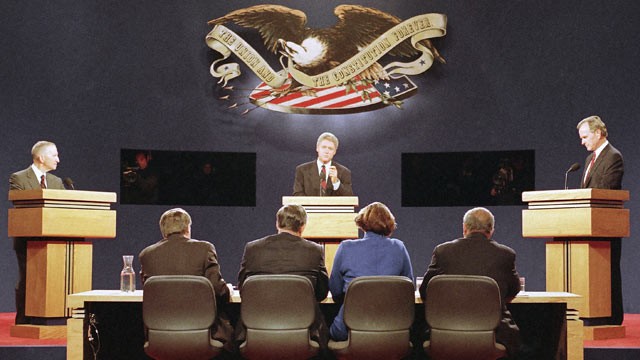In June of last year, I ended 29 years of dithering and finally got a driver's license. Because things like this tend to happen with me, about a month after that I moved two buildings down the street into a new apartment. That meant that the address on my brand-spanking-new license, while very similar to my new one, was no longer accurate. I filed an address change request with PennDOT shortly afterward, and they sent me a little paper update thingy with my new address to keep alongside my license until the time comes to renew it and get a "clean" copy.
I bring this up because, thanks to a new PA law passed in March, it's possible that I will be turned away from the voting booth this November.
The law requires all voters to have a valid and "acceptable" form of photo ID when they show up to vote. According to the letter of the law, I should be just fine, but because my voter registration card has a different address than my license, and my license update thingy (technical term, you understand) doesn't have a photo, it's entirely possible that a difficult polling-place attendant could decide that my ID isn't "acceptable", and deny me my vote. I'd probably be proven right in the end, but by then it would be far too late to cast my vote, and the damage would be done.
And that's just a misunderstanding--there's also the matter of the almost, if not more than, one million registered Pennsylvania voters with no photo ID whatsoever. Many of whom may not even have heard of the new law, or who don't hear about it in time to obtain ID before Election Day.
That's very unforunate for those people, of course, but voter fraud is a bad thing--so if forcing people to get proper identification is what it takes to stop it, why has the law (and many others like it around the country) caused so much controversy?
A couple times now, I've been asked some version of that question, and I admit, I've had trouble putting it in a way that doesn't sound like I'm in favor of fraud. So I think the thing to do is dig in a little to what exactly constitutes real voter fraud--in PA and elsewhere.
I was able to find two different studies on instances of voter fraud; one which found 340 cases, nationwide, over a ten-year period, and one which found 120 cases over a five-year period.
In the latter study, only 86 of the 120 cases resulted in a conviction, and in both studies, the bulk of the cases involved registration fraud--generally someone filling out a form incorrectly--or people casting votes despite being ineligible due to their criminal records. Mistakes, in other words.
The only "widespread" voter fraud anyone seems to have found real evidence of is vote-buying among small, local elections. Out of the aforementioned 86 convictions (again, nationwide), vote-buying constituted a little more than a quarter of those cases. Of course, if the sheriff pays the guys on his block to vote for him, the voter-ID law wouldn't really stop that, would it? And come to think of it, felons are generally allowed to have driver's licenses, so it wouldn't really stop them either. The only people the law would actually "catch" are shlubs with messed-up registration addresses like me.
But, y'know, even still--let's say there are still people out there filling out multiple registration forms and voting multiple times under different names. Let's say
all 340 of the fraud cases found in the bigger of those two studies were malicious repeat-voters.
That works out to less than one case per state per year. I dare you to think of any other crime that, if it produced one arrest per state per year, wouldn't be seen as a resounding victory against the forces of evil.
Now let's look at the other wise of that equation--maybe it's not helping that much, but what's it hurting?
Statistically, voters without valid photo ID are more likely to be either very young (can't be bothered) or very old (can't figure it out). They're also more likely to be poor (can't afford the fees), and
far more likely to be minorities--in the case of Pennsylvania hispanics, more than twice as likely.
What do all these groups have in common? They vote Democratic. And sure enough, every single state to bring up a voter-ID law since 2006 (before which there were none whatsoever) did so with a Republican-led state legislature, with the lone exception of Rhode Island (and god knows what's going on with those people).
It's become such a transparent means of voter manipulation, in fact, that Representative Mike Turzai, the Majority Leader of PA's Republican House, recently
went in front of a camera and bragged that the law would deliver his state to Mitt Romney in 2012.
So in conclusion--yes, voter fraud is bad. But
to paraphrase Jon Stewart, it isn't happening, and voter-ID won't stop it. But what it will absolutely do is keep thousands of upstanding PA citizens from voting. What's a worse crime against our electoral system, allowing one instance of fraud, or turning away one thousand--hell, one hundred--eligible voters?
Further Reading
In 5-Year Effort, Scant Evidence of Voter Fraud
Closing arguments in hearing on Pennsylvania voter ID law
Pa.’s Voter ID Law: What’s the Big Deal?
Pennsylvania Voter ID Law Hits Philadelphia Blacks, Latinos Harder
Pittsburgh activists scramble in face of voter-ID law
Court decision on Pa. voter ID law won’t end uncertainty





















